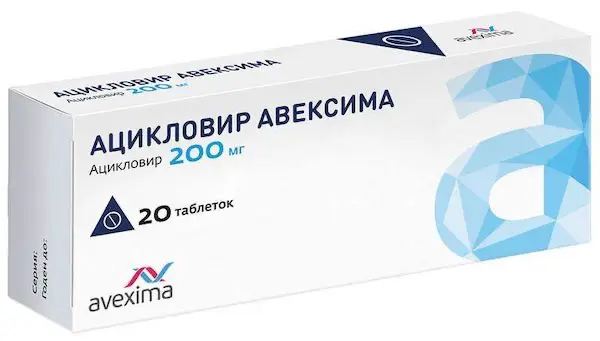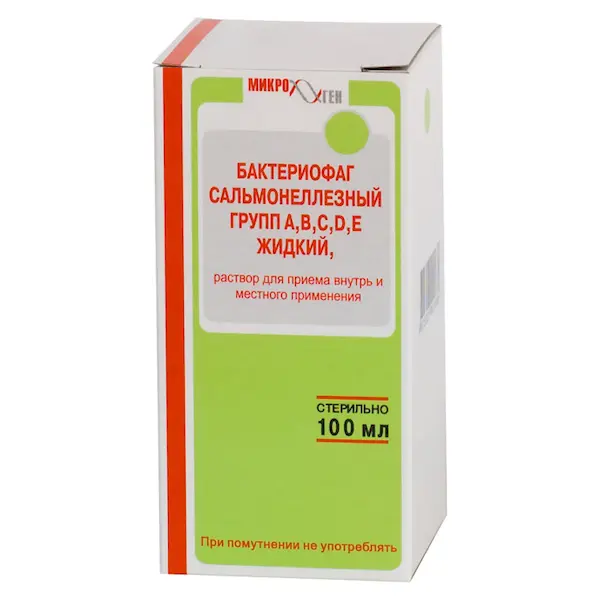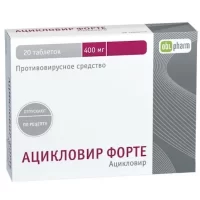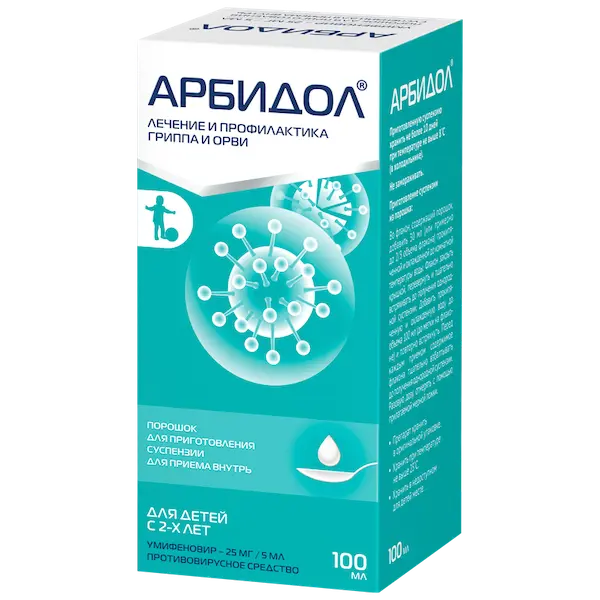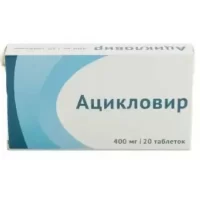Description
AcyclovirAvexima Pharmacodynamics
Acyclovir is a synthetic analog of purine nucleoside, which has the ability to inhibit in vitro and in vivo human herpes viruses, including herpes simplex virus (HPV) types 1 and 2, varicella zoster virus (VZV), Epstein-Barr virus (EBV) and cytomegalovirus (CMV). In cell culture, acyclovir has the most pronounced antiviral activity against HPV-1, followed in descending order of activity by HPV-2, VZV, EBV and CMV.
The inhibitory effect of acyclovir against herpes viruses (HAV-1, HAV-2, VZV, EBV, CMV) is highly selective. Acyclovir is not a substrate for thymidine kinase enzyme of uninfected cells, so acyclovir is little toxic for mammalian cells. Thymidine kinase of cells infected with HPV, EVD, EBV and CMV converts acyclovir into acyclovir monophosphate, a nucleoside analog, which is then sequentially converted into diphosphate and triphosphate under the action of cellular enzymes. Incorporation of acyclovirtriphosphate into the viral DNA chain and subsequent chain breakage block further replication of viral DNA.
In patients with severe immunodeficiency, prolonged or repeated courses of acyclovir therapy may lead to the emergence of resistant strains, so further treatment with acyclovir may not be effective. Most isolated strains with decreased sensitivity to acyclovir showed relatively low levels of viral thymidine kinase, impaired viral thymidine kinase structure or DNA polymerase. Exposure of herpes simplex virus (HPV) strains to acyclovir in vitro can also lead to the formation of less sensitive strains. No correlation has been established between the sensitivity of herpes simplex virus (HPV) strains to acyclovir in vitro and the clinical efficacy of the drug.
Indications
-Treatment of infections of the skin and mucous membranes caused by herpes simplex virus, including primary and recurrent genital herpes;
-prevention of recurrent herpes simplex virus infections in patients with normal immune status;
-Prevention of herpes simplex virus infections in immunocompromised patients;
Treatment of varicella and herpes zoster (early treatment of herpes zoster with acyclovir has analgesic effects and may decrease the incidence of post-herpetic neuralgia)
Contraindications
Hypersensitivity to acyclovir, valacyclovir, or any excipient of the drug.
Lactase, sucrose/isomaltase deficiency, lactose intolerance, fructose intolerance, glucose-galactose malabsorption.
Childhood under 3 years of age (for this dosage form).
Caution
Pregnancy, breast-feeding, elderly, renal insufficiency, dehydration, concomitant use with other nephrotoxic drugs.
Administration during pregnancy and breastfeeding.
Pregnancy
Analysis of acyclovir treatment of women during pregnancy showed no increase in the number of birth defects in their children compared to the general population.
However, caution should be exercised when prescribing acyclovir to women during pregnancy and the anticipated benefit to the mother and the possible risk to the fetus should be assessed.
Breastfeeding period.
After oral administration in a dose of 200 mg 5 times a day, acyclovir is detected in breast milk at concentrations ranging from 60% to 410% of the plasma concentration. At these concentrations in breast milk, breastfed children may receive acyclovir at a dose of up to 0.3 mg/kg/day. Taking this into account, caution should be exercised when prescribing acyclovir to breastfeeding women.
Dosage and administration
- Acyclovir can be taken with food, since eating does not interfere with its absorption to any great extent. The tablets should be washed down with a full glass of water.
- Adults
Treatment of infections caused by the herpes simplex virus
For the treatment of infections caused by herpes simplex virus, the recommended dose is 200 mg 5 times a day (every 4 hours, except for bedtime). Usually the course of treatment is 5 days, but it can be extended in severe primary infections. - In case of severe immunodeficiency (e.g., after bone marrow transplantation) or in case of intestinal absorption disorders, the dose of the drug for oral administration may be increased to 400 mg.
- Treatment should be started as soon as possible after the onset of infection; in relapses the drug should be administered as early as in the prodromal period or when the first rash elements appear.
- Prevention of recurrence of infections caused by herpes simplex virus For prevention of recurrence of infections caused by herpes simplex virus in patients with normal immune status, the recommended dose of the drug is 200 mg 4 times a day (every 6 hours).
Many patients are suitable for a more convenient scheme of therapy of 400 mg 2 times a day (every 12 hours). - In some cases, lower doses of 200 mg 3 times daily (every 8 hours) or 200 mg 2 times daily (every 12 hours) are effective.
- Some patients may experience an exacerbation of the infection when taking a total daily dose of 800 mg.
- Treatment with the drug should be periodically interrupted for 6-12 months to detect possible changes in the course of the disease.
- Prevention of infections caused by herpes simplex virus in immunodeficient patients
For prophylaxis of infections caused by herpes simplex virus in immunodeficient patients the recommended dose is 200 mg 4 times per day (every 6 hours). - In case of severe immunodeficiency (e.g., after bone marrow transplantation) or intestinal absorption disorders, the oral dose may be increased up to 400 mg 4 times per day.
The duration of prophylactic therapy is determined by the duration of the period when there is a risk of infection. - Treatment of chickenpox and herpes zoster
For treatment of chicken pox and herpes zoster, the recommended dose is 800 mg five times a day (every four hours, except for nighttime sleep). The course of treatment is 7 days. - The drug should be prescribed as soon as possible after the beginning of the infection, because the treatment is then more effective.
Special patient groups - Children aged 3 years and over
Treatment of infections caused by herpes simplex virus; prevention of infections caused by herpes simplex virus in immunodeficient patients
– Aged 3 years and older – same doses as for adults. - Treatment of chickenpox
– Age 6 years and older – 800 mg 4 times a day;
– Ages 3 to 6 years old – 400 mg 4 times a day.
A more precise dose can be determined at the rate of 20 mg/kg of body weight (but no more than 800 mg) 4 times a day. The course of treatment is 5 days.
Prevention of recurrence of infections caused by herpes simplex virus; treatment
Herpes zoster. - Data on the dosage regimen is not available.
Elderly patients
The possibility of renal impairment in elderly patients should be considered, and doses should be adjusted according to the degree of renal impairment (see subsection “Patients with renal impairment”). Maintenance of adequate water balance should be ensured. - Patients with impaired renal function
Caution should be exercised when administering acyclovir to patients with impaired renal function. - It is necessary to ensure adequate water balance.
In patients with renal impairment, oral administration of acyclovir in recommended doses for the treatment and prevention of infections caused by Herpes simplex virus does not lead to cumulation of the drug to concentrations exceeding the established safe levels. However, in patients with creatinine clearance less than 10 ml/min, it is recommended to decrease the drug dose to 200 mg twice a day (every 12 hours). - When treating varicella and herpes zoster, the recommended doses of the drug are:
– If creatinine clearance is less than 10 ml/min, 800 mg 2 times a day (every 12 hours);
– if creatinine clearance is 10-25 ml/min – 800 mg 3 times a day (every 8 hours).

